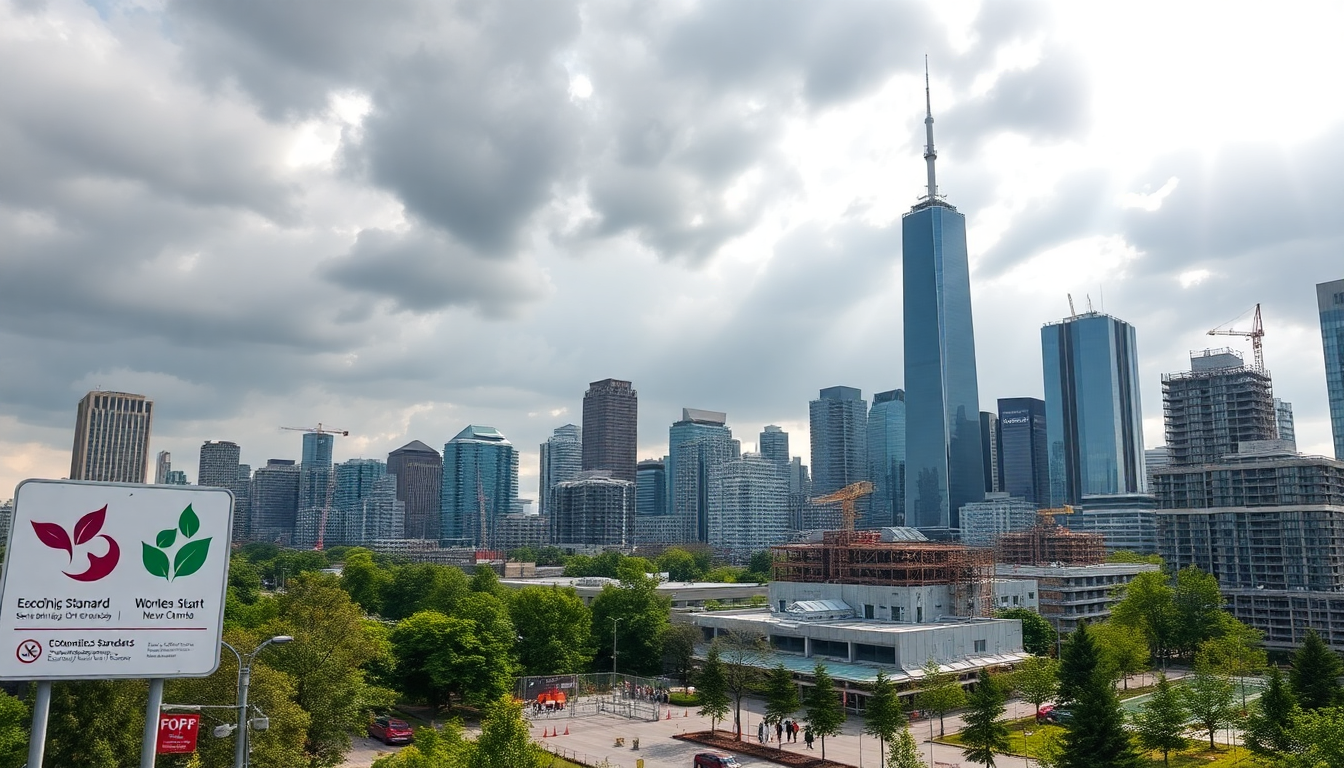Table of Contents
Imagine being in a city where climate change is a reality, and your government is trying to pull the rug out from under your feet. Welcome to Toronto, where officials are claiming they still hold the reins on climate and sustainability regulations for new buildings. Yes, you heard that right. Despite a recent Ontario law that many fear could stifle these necessary standards, a fresh report from city staff insists that the city is still in the game. But how much does that actually mean for the everyday resident? And is this just smoke and mirrors?
Understanding the recent legislation
The report presented to the city’s executive committee asserts that there’s “no impact” on Toronto’s authority to enforce its green standards, even with the newly minted Bill 17 in the mix. This act, dubbed the Protect Ontario by Building Faster and Smarter Act (what a mouthful!), has raised eyebrows among environmentalists and industry professionals alike. They argue that the legislation might limit municipal power, preventing cities from enforcing standards that exceed provincial building codes. So, what’s the reality? Are we really about to witness the city’s green initiatives being tossed out like last week’s garbage?
What does Toronto’s green standard entail?
Toronto’s green standard is not just some eco-friendly buzzword; it’s a lifeline for the city’s climate plan. The regulations demand that new buildings implement measures to fight flooding during heavy rains and manage their emissions effectively. Developers are pushed to ditch the gas and consider low-carbon alternatives like heat pumps. Plus, there’s a requirement for bike and electric vehicle parking. Sounds great, right? But wait, there’s a flip side. Critics argue that these standards are just a recipe for increased housing costs. Can you imagine trying to keep up with housing prices while your city throws more regulations into the mix?
Government’s mixed signals
So, what’s the government saying about all this? A spokesperson for Municipal Affairs and Housing Minister Rob Flack was tight-lipped, sidestepping the question of whether the bill would impact Toronto’s enforcement of its green standards. Instead, she claimed that the government’s focus is on what the “economics support,” which sounds suspiciously like a nice way of saying they want to cut corners. Isn’t it funny how economics always seems to trump the environmental agenda when it suits them?
Reactions from the environmental community
The Atmospheric Fund, a regional agency dedicated to climate solutions, suggests that green standards might actually speed up development. They argue that streamlining sustainability requirements into one clear document could clear the path for faster approvals. Isn’t that a refreshing perspective? Meanwhile, Bryan Purcell from The Atmospheric Fund expressed surprise at how definitive the city’s stance was, emphasizing that without green standards, Toronto’s climate objectives are at risk. So why isn’t everyone on board with that? Are we really that stubborn?
The confusion stemming from Bill 17
Despite the positive spin from some quarters, the new provincial law has created a cloud of confusion over municipalities looking to establish their own green standards. Purcell foresees a potential slowdown in cities attempting to create their first green standards, which raises a crucial question: Is this really progress, or just another bureaucratic mess? Bill 17 was rushed through the legislature without proper scrutiny, leaving many to wonder what’s really at stake here.
Concerns from the architectural community
The Ontario Association of Architects has raised alarms, suggesting that the changes under Bill 17 could render green standards obsolete. They argue that these standards are essential for understanding energy consumption in buildings and achieving provincial climate targets. But the Residential Construction Council of Ontario doesn’t share the same enthusiasm, viewing the standards as a hindrance to affordable housing. President Richard Lyall has labeled the city staff report as “delusional and unsubstantiated.” Ouch! Talk about a public relations nightmare.
The road ahead for Toronto’s green standards
With over a dozen municipalities looking to Toronto for guidance on green standards, the stakes are high. While Toronto, Halton Hills, and Whitby have mandatory standards, most others are still voluntary. It seems there’s a tug-of-war happening, and the city is right in the thick of it. As the dust settles on this chaotic political landscape, one can’t help but wonder: Will Toronto emerge as a beacon of sustainability, or will it be just another cautionary tale of lost ambition?
As we look towards the future, it’s clear that the conversation around climate standards in Toronto is far from over. With competing interests clashing and a government that seems to prioritize speed over sustainability, the question remains: how much longer can we afford to ignore the bigger picture? And will anyone actually care when it’s too late?


